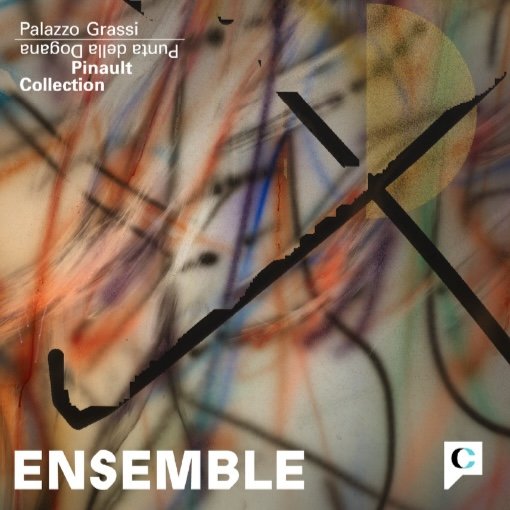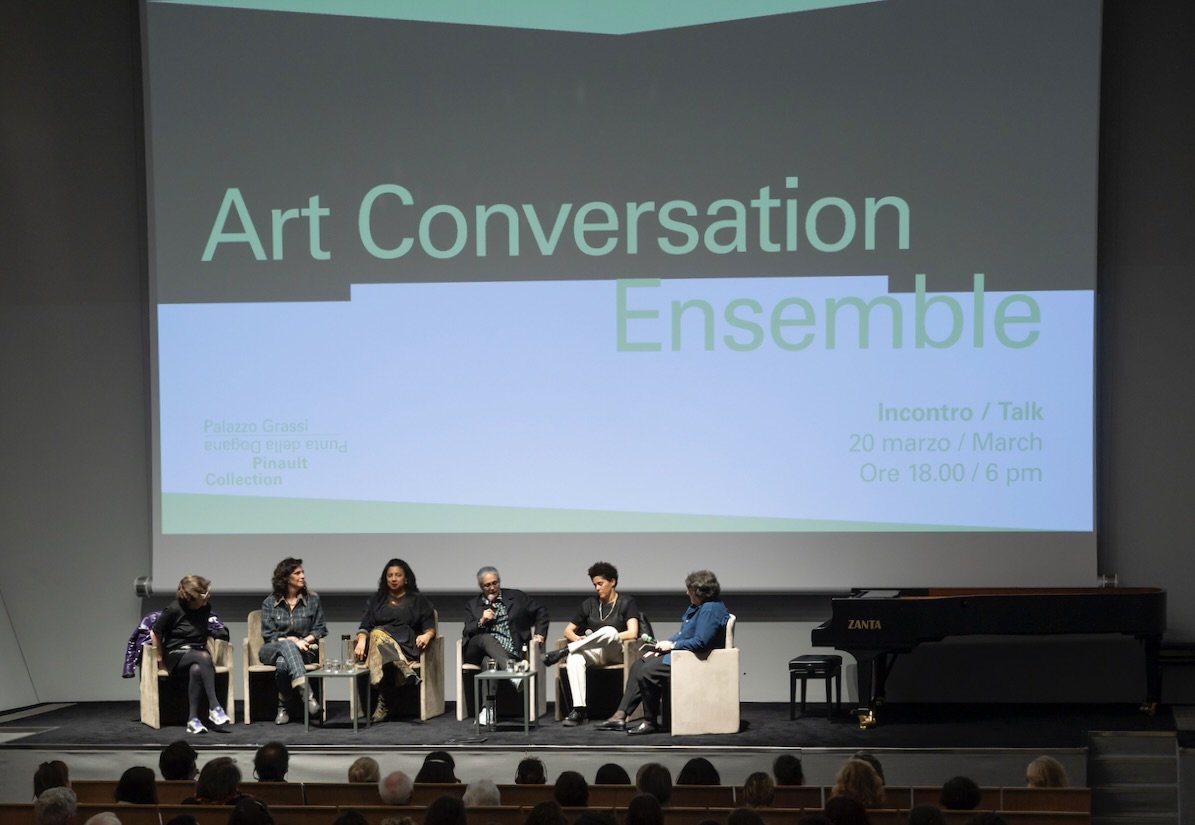
Podcast "Ensemble"
Palazzo Grassi presents the podcast in three languages dedicated to the exhibition "Ensemble" and to the work of Julie Mehretu, in collaboration with Chora Media.
Listen to the podcast
To mark the largest European exhibition of Julie Mehretu's work to date, Palazzo Grassi and Chora Media produced "Ensemble", a podcast that explores the story of the artist and the making of the "Ensemble" exhibition told in her own words along with the testimonies of some prominent speakers.
Edited by Ivan Carozzi, author and writer, the project involves numerous figures from the international cultural scene - the journalist Francesca Sibàni, Africa editor for Internazionale, the artist Paul Pfeiffer, the pianist and composer Jason Moran and the curator Caroline Bourgeois – who are invited to contribute to a choral narrative on the subjects in the artistic universe of Julie Mehretu.
After the podcast “A Sort of Tenderness. Marlene Dumas between Words and Images“, dedicated to the exhibition “Marlene Dumas. open- end”, presented in 2022 at Palazzo Grassi, and “Chronorama. Snapshots from the 20th century” dedicated to the exhibition “CHRONORAMA. Photographic Treasures of the 20th century” presented at Palazzo Grassi in 2023, Palazzo Grassi now introduces a podcast devoted to the artist Julie Mehretu.
The podcast in two episodes is available for free in three languages – Italian, French and English – on Spreaker, Spotify or Apple platforms.
Ep. 1. From Ethiopia to the United States
The first episode traces the artist's biography, from her childhood to the point when she became one of the most influential artists on the contemporary art scene. Julie Mehretu describes her childhood in Addis Ababa, Ethiopia, then her relocation to the United States due to the country's political instability.
"I didn't grow up in a place where contemporary art was a possible, was even something we knew about [...] I grew up going to major museums, but contemporary art wasn't something that they had a lot of." — Julie Mehretu
Mehretu si afferma definitivamente nel nuovo millennio, grazie a uno stile potente e inconfondibile, dove confluiscono e si smarriscono diverse influenze e fonti d’ispirazione, dall’architettura ai grandi eventi storici del nostro tempo. Nel suo cammino, tuttavia, non è mai sola, ma sempre accompagnata da un gruppo di amici e artisti, quelli della comunità di Denniston Hill.
Ep. 2. In Venice, together
The second episode entitled "In Venice, Together" gets to the heart of the "Ensemble" exhibition at Palazzo Grassi, offering a glimpse into some of Julie Mehretu's works, featuring her own voice and a commentary by curator Caroline Bourgeois.
"She's a displaced person, which I think is important because, uh, the first, uh, main project of his, her abstract painting was about architecture and the power of the city within the architecture [...] She invented a way of painting with a lot of different layers. [...] And the body is always there. And there's something which is very musical with the painting at the end. So you dance with the painting nearly in a way [...]" — Caroline Bourgeois
The voices lead to the discovery of the works by Mehretu’s fellow artists in the exhibition, with the account of one of them, Paul Pfeiffer, a friend and member her community. Furthermore, with the voice of Jason Moran, an internationally renowned pianist and jazz composer, a deeply influential aspect of Mehretu's painting is addressed: her profound connection to music.
"[...] there is something that's really moving in that for me that I can't really talk about, I can't articulate because my interest in it is that how all of that information coalesces to make some to the experience, the visceral, felt experience in front of the work." — Julie Mehretu
